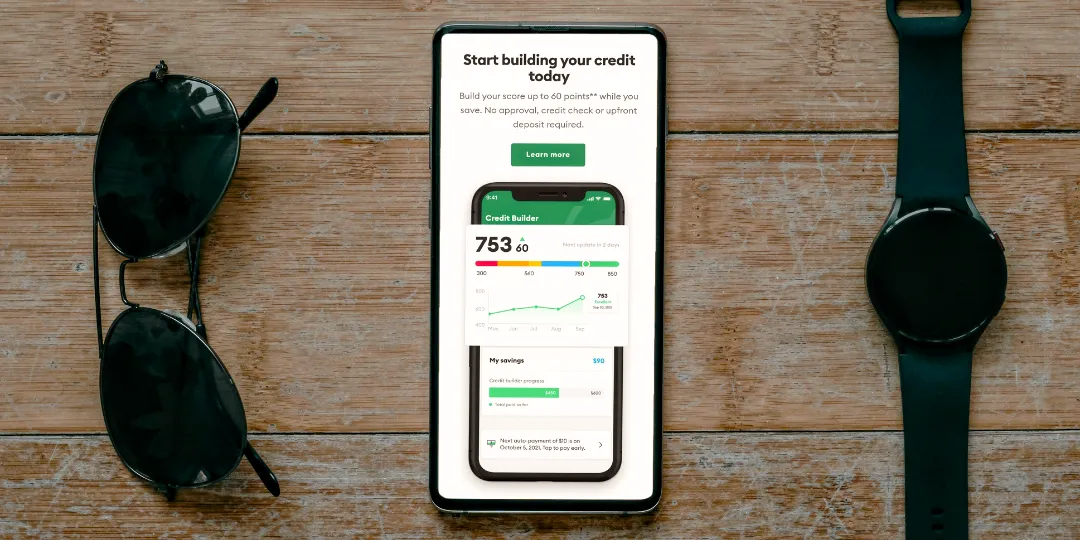If you’ve ever applied for a loan and either got stuck with a high-interest rate or were flat-out denied, you’ve probably felt firsthand how much a bad credit score can mess with your financial options. Whether it’s getting a loan, applying for a credit card, or even renting an apartment, your credit score can determine what kind of opportunities are available to you.
This is why learning how to get a good credit score is one of the most crucial steps you can take toward achieving financial freedom. Your credit score isn’t just a number – it’s a gateway to opportunities like better loan terms, lower interest rates, and even securing that dream apartment or landing favorable insurance rates. Whether you’re just starting to build your credit or looking to boost an already established score, understanding how it works is essential.
In this comprehensive guide, I’ll break down the exact steps you need to take to build, maintain, and improve your credit score. I’ll explain what factors impact your credit score, how to deal with debt responsibly, and which financial habits can help you reach and maintain a higher score. Along the way, you’ll learn about the different credit scoring systems, why paying bills on time is crucial, and what to avoid if you’re serious about keeping your credit healthy.
By the end of this article, you’ll not only have a clear plan of how to get a good credit score but also feel more confident navigating the world of credit cards, loans, and long-term financial planning. Let’s dive right in!
What Is a Credit Score and Why Does It Matter?
Your credit score is a three-digit number that tells lenders how trustworthy you are when it comes to paying back debt. Think of it as a financial report card. If you’re aiming to get a good credit score, it can make life easier in a lot of ways, from helping you secure loans to even lowering your insurance premiums.
Credit scores typically range from 300 to 850, with a higher score indicating you’re a lower risk for lenders. Here’s why having a good credit score is so important:
- Lower interest rates on loans and credit cards, which can save you money.
- Better chances of approval for major loans like mortgages or car loans.
- More favorable terms on rentals, making it easier to get the apartment you want.
- In some cases, a good credit score even means lower insurance premiums.
If you want to get a good credit score, it’s crucial to understand how credit scores work, what different types exist, and what factors influence them.
Types of Credit Scores
The two main types of credit scoring models used by lenders are:
- FICO Score: The most widely used score by lenders.
- VantageScore: Another common model, often used by free credit monitoring services.
Both scores follow a similar range but may weigh certain financial behaviors slightly differently.
Factors That Affect Your Credit Score
Your credit score isn’t just a random number. It’s made up of several factors:
- Payment History (35% of your score): Paying bills on time is the single most important factor in getting a good credit score.
- Credit Utilization (30%): How much of your available credit you’re using. Keeping this low helps boost your score.
- Length of Credit History (15%): The longer you’ve had credit, the better, as long as you’re managing it well.
- Types of Credit (10%): Having a mix of different credit types (credit cards, loans, etc.) is good for your score.
- Recent Inquiries (10%): Too many applications for credit in a short time can hurt your score.
Why Having a Good Credit Score Matters
Imagine you’re applying for a mortgage, and two people apply – one with a credit score of 750 and the other with a 600. The person with the 750 score is more likely to get approved and will probably get a lower interest rate. Over the life of a loan, this could save them thousands of dollars in interest payments.
In short, a good credit score isn’t just a number – it directly affects your financial future. If you want the best rates, the most flexibility, and more financial freedom, it’s worth focusing on improving your credit score.

The Difference Between FICO and VantageScore Credit Scores
When you’re working to get a good credit score, it’s helpful to know that not all credit scores are created equal. The two most popular systems for calculating your credit score are FICO and VantageScore. While they both provide a score ranging from 300 to 850, they differ slightly in how they weigh certain factors.
FICO Score
The FICO score is the most widely used credit score by lenders. It’s typically the one banks, credit card companies, and mortgage lenders look at when deciding if you’re creditworthy. FICO scores fall into these categories:
- Excellent: 800-850
- Very Good: 740-799
- Good: 670-739
- Fair: 580-669
- Poor: 300-579
The higher your score, the better your chances of securing loans and credit cards with low-interest rates and better terms.
How FICO Weighs Different Factors
- Payment History (35%): Your track record for paying bills on time has the biggest impact on your FICO score.
- Credit Utilization (30%): This is the percentage of your available credit you’re currently using. Keeping it below 30% helps maintain a good score.
- Length of Credit History (15%): The longer you’ve had your accounts open, the better, especially if you’ve been managing them responsibly.
- New Credit (10%): Applying for new credit frequently can hurt your score, so it’s important to space out credit applications.
- Credit Mix (10%): Having a variety of credit types – like credit cards, auto loans, and mortgages – can give your score a boost.
VantageScore
The VantageScore is another credit scoring model that lenders may use, although it’s less common than FICO. Like FICO, VantageScore ranges from 300 to 850, but the weightings for each factor differ slightly. This means that even if you see a small variation between your FICO and VantageScore, it’s not unusual.
How VantageScore Weighs Different Factors
- Payment History (40%): This plays an even bigger role in VantageScore than it does in FICO, making on-time payments extremely important.
- Credit Utilization (20%): Like FICO, VantageScore emphasizes the importance of keeping your credit balances low.
- Age of Credit (21%): VantageScore places a bit more weight on how long you’ve been using credit than FICO does.
- New Credit Accounts (11%): Opening too many new accounts too quickly can drop your score in both models.
- Credit Mix and Balances (8%): Having a diverse range of credit products – credit cards, loans, etc. – is valued, but it’s not as heavily weighted in VantageScore.
Which Credit Score Matters More?
The reality is that both FICO and VantageScore matter, but since FICO is more widely used, it tends to be more relevant in major financial decisions, such as applying for a mortgage or credit card. However, both models are good indicators of your overall credit health.
If you’re aiming to get a good credit score, understanding both of these systems can give you a clearer picture of where you stand and what steps you can take to improve your score. Whether you’re focusing on paying bills on time, reducing your credit balances, or improving the length of your credit history, these actions will benefit you under both models.
| Score Range | FICO Rating | VantageScore Rating | Description | Impact on Financial Decisions |
| 800-850 | Excellent | Excellent | You have a long history of on-time payments and low credit utilization | Best loan terms, lowest interest rates, high approval odds |
| 740-799 | Very Good | Very Good | You manage credit responsibly, with few late payments and good credit usage | Great loan terms, competitive interest rates |
| 670-739 | Good | Good | Your credit is in good standing, but there may be occasional late payments | Average loan terms, possible higher interest rates |
| 580-669 | Fair | Fair | You have a mixed credit history, possibly with late payments or high balances | Limited loan options, higher interest rates, possible denials |
| 300-579 | Poor | Poor | You may have missed payments, high debt levels, or recent bankruptcy | Difficulty securing loans or credit; very high interest rates if approved |
What Makes Up Your Credit Score?
If you want to get a good credit score, it’s important to understand what factors contribute to it. Whether you’re checking your FICO score or VantageScore, the elements that make up your score are mostly the same. By focusing on these areas, you can improve your score and gain access to better financial opportunities. Here’s a breakdown of the five key components based on the more commonly used FICO score:
Payment History (35%)
The most critical factor in determining your credit score is your payment history. This shows lenders whether you pay your bills on time. If you consistently make late payments or miss them altogether, it can seriously damage your score. Even just one late payment can have a noticeable negative effect.
- Tip: Set up automatic payments or reminders to ensure you’re always paying on time. A long track record of on-time payments is one of the easiest ways to improve your credit score.
Credit Utilization (30%)
Credit utilization refers to how much of your available credit you’re using. For example, if your credit card has a limit of $1,000 and you have a balance of $500, your utilization rate is 50%. To get a good credit score, experts recommend keeping your credit utilization under 30%. The lower your utilization rate, the better it is for your score.
- Tip: If you’re carrying high balances, work on paying them down to keep your utilization low. You can also ask for a credit limit increase to instantly lower your utilization ratio.
Length of Credit History (15%)
The length of your credit history is another important factor. This includes how long your accounts have been open and how long it’s been since you used them. In general, the longer your credit history, the more it helps your score. That’s why keeping old accounts open, even if you no longer use them frequently, can benefit you.
- Tip: Avoid closing old credit accounts, especially if they have a long history of on-time payments. Keeping those accounts active helps boost your score over time.
New Credit (10%)
Every time you apply for a new credit card, loan, or any form of credit, a hard inquiry is made on your credit report. This inquiry can temporarily lower your credit score, especially if you apply for multiple accounts in a short period. Lenders may view too many new accounts as a sign that you’re taking on too much debt.
- Tip: Space out credit applications, and only apply for new credit when necessary. Multiple inquiries in a short time can cause your score to drop, so it’s best to limit new applications.
Credit Mix (10%)
A diverse mix of credit types can positively impact your score. Lenders like to see that you can manage different types of credit responsibly, such as credit cards (revolving credit), auto loans, student loans, and mortgages (installment credit). While it’s not necessary to have all of these, having a balanced mix can help improve your score.
- Tip: If you only have one type of credit, consider adding a different form, like a personal loan or a credit card, to improve your credit mix. However, do this strategically and only when it makes sense for your financial situation.
To get a good credit score, focus on the areas that matter most: paying bills on time, keeping your credit utilization low, maintaining long-standing credit accounts, limiting new credit inquiries, and having a healthy mix of credit types. By understanding what makes up your credit score and taking steps to improve these factors, you’ll be on your way to building a strong financial future.

How to Get a Good Credit Score
Now that you know the factors that make up your credit score, let’s dive into how you can actively work toward improving it. Whether you’re trying to fix a bad credit score or just want to boost your existing one, this step-by-step guide will show you exactly what to do. Follow these steps, and you’ll be on your way to getting a good credit score in no time.
Step 1: Check Your Current Credit Score
The first step in getting a good credit score is knowing where you stand. It’s easy to check your score, and the good news is there are several free options that let you check your score without hurting it. Websites like Credit Karma, Credit Sesame, and AnnualCreditReport.com offer free reports and updates.
Once you have your score, set a realistic goal. For example, if your current score is 650, aim to raise it to 700 within six months. Knowing your starting point gives you a better idea of what areas to focus on for improvement.
Step 2: Pay Your Bills on Time
Paying your bills on time is the most important factor in maintaining and improving your credit score. Since payment history accounts for 35% of your credit score, making consistent, on-time payments is key. Late payments can stay on your credit report for up to seven years, significantly lowering your score.
To ensure you never miss a payment:
- Set up automatic payments for your credit cards, utilities, and loans.
- Use calendar reminders for due dates.
- Keep a small buffer in your checking account to cover payments even if money is tight.
Consistently paying your bills on time will gradually improve your score.
Step 3: Reduce Your Debt
One of the quickest ways to get a good credit score is by paying down your debt. High balances on credit cards or loans can drag down your score, especially if your credit utilization is high (more than 30%).
To reduce debt:
- Start by paying off high-interest debt first, as this will save you money in the long run.
- Consider using the snowball or avalanche method. The snowball method focuses on paying off smaller debts first, while the avalanche method tackles the highest interest rates first.
- You can also consolidate your debt with a personal loan at a lower interest rate, making it easier to pay down faster.
The less debt you have, the better it is for your credit score.
Step 4: Keep Your Credit Utilization Low
Credit utilization is the ratio of how much credit you’re using versus how much credit you have available. A good rule of thumb is to keep your credit utilization below 30%. For example, if your credit limit is $10,000, try not to carry a balance higher than $3,000 at any given time.
To improve your credit utilization:
- Pay down your balances before the billing cycle ends, not just before the due date.
- If you can, request a credit limit increase from your credit card provider. This increases your available credit, lowering your utilization rate instantly.
- Avoid maxing out your cards, even if you plan to pay them off. High balances can still hurt your score.
Maintaining low credit utilization will steadily boost your credit score over time.
Step 5: Be Selective About New Credit
Opening new credit accounts can hurt your score if you’re not careful. Each time you apply for a loan or credit card, a hard inquiry is made on your credit report. This inquiry can lower your score by a few points, and too many inquiries in a short time can raise red flags for lenders.
When applying for new credit:
- Only apply for credit when you really need it.
- Space out your applications. Each hard inquiry stays on your credit report for two years.
- Opt for pre-qualification offers when possible, as these typically only involve a soft inquiry, which doesn’t affect your score.
By being selective, you can avoid unnecessary dings on your credit report.
Step 6: Maintain a Long Credit History
The length of your credit history makes up 15% of your credit score, meaning the longer you’ve had your accounts open, the better. This history shows lenders that you can manage credit responsibly over time.
To maintain a long credit history:
- Keep old accounts open. Even if you’re not using them, older accounts contribute to the overall age of your credit.
- Avoid closing credit cards just because you’re not using them. Closing accounts shortens your credit history, which can lower your score.
- Use your older credit cards occasionally for small purchases to keep them active.
A longer credit history helps lenders trust that you’re capable of managing credit over the long term.
Step 7: Have a Good Credit Mix
Lenders like to see that you can handle a variety of credit types, which makes up 10% of your credit score. Having a good credit mix means you have experience managing both revolving credit (like credit cards) and installment credit (like auto loans, student loans, or mortgages).
While you shouldn’t take on new debt just to improve your score, having a balanced mix can show lenders that you’re responsible with different types of credit.
A good credit mix might include:
- A credit card for daily expenses.
- An auto loan or personal loan.
- A mortgage if you’re a homeowner.
By managing a healthy mix of credit, you demonstrate to lenders that you’re financially responsible, which helps boost your score.
Bonus Tips for Getting a Good Credit Score
- Monitor your credit report regularly: Mistakes can happen, so it’s important to check your report for any errors. You can dispute inaccuracies and have them removed to improve your score.
- Set financial goals: Whether it’s to hit a score of 700 or above, set a clear goal. Having a target helps keep you motivated.
- Avoid closing credit cards: Even if you don’t use a card, closing it can lower your available credit and increase your utilization ratio, which hurts your score.
Getting a good credit score doesn’t happen overnight, but by following these steps, you can steadily improve your score and open up new financial opportunities. Check your score, pay your bills on time, reduce debt, and keep your credit utilization low. Be mindful about applying for new credit, maintain a long credit history, and aim for a good mix of credit types. With consistency and patience, you’ll soon be on your way to achieving a good credit score.
Common Myths About Getting a Good Credit Score
There’s a lot of misinformation floating around about credit scores. To help you navigate the world of credit, let’s clear up some of the most common myths that could be holding you back from getting a good credit score.
Myth 1: Checking Your Credit Hurts Your Score
One of the biggest misconceptions is that checking your own credit score negatively impacts it. The truth is that checking your own score is considered a soft inquiry. This means it does not affect your score at all. You can check your credit report and score as often as you like without any consequences.
In contrast, hard inquiries occur when a lender checks your credit as part of their decision-making process, such as when you apply for a new credit card or loan. These hard inquiries can lower your score slightly, but only for a short period. So, feel free to keep tabs on your score to stay informed!
DID YOU KNOW
Checking your own credit score through a soft inquiry does not hurt your score, but applying for new credit results in a hard inquiry that may temporarily lower it.
Myth 2: Carrying a Small Balance Helps Your Score
Another common myth is that keeping a small balance on your credit card can help improve your credit score. Many people believe that showing activity on their card is beneficial. However, this is not true. The best practice is to pay off your balance in full each month.
Carrying a balance only adds unnecessary interest charges and increases your credit utilization ratio, which is a key factor in your credit score. A lower credit utilization ratio – ideally below 30% – is much more beneficial for getting a good credit score. So, make it a habit to pay off your balances to avoid any pitfalls.
Myth 3: Closing Old Credit Cards Helps Your Score
Some people think that closing old credit cards is a smart way to manage their credit. However, closing these accounts can actually hurt your credit score. Here’s why: closing old accounts reduces the length of your credit history and could increase your credit utilization rate.
Longer credit histories show lenders that you have experience managing credit responsibly. Plus, if you close an old card and don’t have much remaining credit, your utilization may spike, which can lower your score. Instead of closing old cards, consider keeping them open and using them occasionally to keep your credit history strong.
Myth 4: All Credit Scores Are the Same
A lot of people think there’s just one universal credit score that everyone uses. But that’s not the case! There are several different scoring models, with FICO and VantageScore being the most popular.
- FICO Score: This score is what most lenders use to assess creditworthiness. It ranges from 300 to 850 and is calculated based on factors like payment history, credit utilization, and the length of your credit history.
- VantageScore: This scoring model also ranges from 300 to 850 but uses slightly different criteria and weightings to calculate your score.
Because of these different models, you might find that your credit score varies from one source to another. It’s essential to know which score lenders are looking at and understand how each scoring model calculates your creditworthiness. Keeping this in mind can help you get a more accurate picture of your credit status.
Myth 5: Paying Off Collections Removes Them from Your Credit Report
Another misconception is that simply paying off a collection account will make it disappear from your credit report. While paying off the debt is a positive step and can help improve your credit score over time, it doesn’t remove the collection account itself.
- Impact of Collections: Collections can stay on your credit report for up to seven years from the date of the original delinquency, even if you pay them off. This means that while your score might improve, the record of the collection will still be visible to lenders.
- What You Can Do: If you do pay off a collection, be sure to check your credit report to ensure it is marked as “paid.” Some creditors may also agree to remove the collection from your report upon payment, but this is not guaranteed.
Understanding that paying off collections does not erase them can help you manage your expectations and focus on other strategies to improve your credit score.
Myth 6: You Can Only Improve Your Score After Paying Off Debt
Many believe that the only way to boost your credit score is to eliminate all your debt first. While paying down debt is certainly crucial, it’s not the only factor you can work on to enhance your score.
- Timely Payments: Your payment history is the most significant factor affecting your credit score, making up 35% of your FICO score. By making all your payments on time – whether it’s for loans, utilities, or credit cards – you can see improvements in your score.
- Low Credit Utilization: This factor, which measures how much of your available credit you’re using, accounts for 30% of your credit score. You can improve this ratio even if you have existing debt. Aim to keep your credit utilization below 30% by paying down your balances or increasing your credit limits.
- Other Factors: Length of credit history and credit mix are also important. Keeping older accounts open can help lengthen your credit history, while having a variety of credit types (like credit cards and installment loans) can showcase your ability to manage different forms of credit.
By focusing on these aspects, you can work on improving your credit score even while still managing your debt. Don’t let the myth that you must be debt-free to improve your score hold you back from taking proactive steps toward better credit!
Understanding these common myths will leave you better equipped to navigate the world of credit. Knowing the truth about getting a good credit score can help you make informed decisions that positively impact your financial future. So, keep these points in mind and take charge of your credit!

How Long Does It Take to Build a Good Credit Score?
Building a good credit score is a journey that requires time and dedication. It’s important to understand that this process doesn’t happen overnight. However, by following the right steps and maintaining good financial habits, you can see progress.
Initial Improvements
If you’re actively working to improve your credit score – like paying down existing debt and making all your payments on time – you might start to notice small improvements within just a few months. For example:
- Payment History: Since payment history is the most significant factor in your score, making on-time payments consistently can lead to quicker boosts. If you had late payments in the past, showing a solid record of timely payments can positively impact your score over time.
- Credit Utilization: If you reduce your credit utilization (the amount of credit you’re using compared to your total credit limit), you might also see an improvement fairly quickly. Aim to keep this ratio below 30%.
Significant Changes
While small gains can happen in a few months, bigger changes to your credit score may take a year or more. Here’s why:
- Length of Credit History: The longer you keep your credit accounts open, the better it is for your score. This factor accounts for 15% of your FICO score. If you’re just starting out, building a solid credit history will take time.
- Diverse Credit Mix: Having a variety of credit types (like credit cards, car loans, and mortgages) can improve your score, but acquiring different types of credit responsibly takes time.
Starting from Scratch
If you’re starting with no credit history, getting to a good credit score can take a few years. Here’s what to keep in mind:
- Establishing Credit: Consider starting with a secured credit card or a credit-builder loan. These options allow you to build credit while making small, manageable payments.
- Patience and Persistence: Building a solid credit score takes consistent effort. Even if you don’t see immediate results, stay committed to your financial goals.
As you can see, the timeline for building a good credit score varies based on your starting point and the financial habits you adopt. While you may see small improvements in just a few months, achieving a robust score requires a long-term commitment to responsible credit management. With patience and smart financial choices, reaching a good credit score is entirely achievable!
DID YOU KNOW
Keeping your credit utilization below 30% of your credit limit is essential to maintain or improve your credit score.
How to Protect Your Credit Score
Once you’ve worked hard to build a good credit score, it’s essential to take steps to protect it. Here are some practical strategies to ensure your credit remains in great shape.
Monitor Your Credit Regularly
Keeping an eye on your credit score is a proactive way to protect it. Consider these tips:
- Use Credit Monitoring Apps: Apps like Credit Karma or Experian provide free access to your credit score and report. They offer features that alert you to any significant changes, helping you catch potential issues early.
- Review Your Credit Reports: You’re entitled to a free credit report from each of the three major credit bureaus – Equifax, Experian, and TransUnion – once a year at AnnualCreditReport.com. Take advantage of this to check for accuracy and any signs of fraud.
Watch Out for Identity Theft
Identity theft can have a severe impact on your credit score. Here’s how to safeguard against it:
- Check for Unfamiliar Accounts: Regularly review your credit report for accounts you don’t recognize. If you find any, it could be a sign that your identity has been compromised.
- Be Aware of Your Personal Information: Be cautious about sharing your Social Security number, bank details, or any personal information, especially online. Always verify the legitimacy of websites before entering sensitive information.
Freeze Your Credit If Necessary
If you suspect that you might be a victim of identity theft, freezing your credit can be a smart move:
- What a Credit Freeze Does: Freezing your credit report prevents lenders from accessing it, which means no new accounts can be opened in your name. This is a powerful way to safeguard your credit score while you resolve any issues.
- How to Freeze Your Credit: You can freeze your credit by contacting each of the three major credit bureaus. The process is typically straightforward and can often be done online. Remember, you can unfreeze it later when you’re ready to apply for new credit.
Additional Tips
- Set Up Fraud Alerts: If you suspect identity theft, you can place a fraud alert on your credit report. This alerts potential lenders to take extra steps to verify your identity before approving any new credit applications.
- Maintain Good Financial Habits: Continue practicing good financial habits, like making payments on time and keeping your credit utilization low. These behaviors not only build your score but also help maintain it.
By actively monitoring your credit, being vigilant against identity theft, and knowing when to freeze your credit, you can protect your hard-earned credit score. Taking these steps will give you peace of mind and help ensure that your credit remains a valuable asset for your financial future.

Why Having a Good Credit Score Matters in Financial Decisions
Your credit score is more than just a number; it plays a crucial role in various aspects of your financial life. Understanding how a good credit score can benefit you can help you make informed decisions that positively impact your finances.
Buying a Home
When you’re looking to buy a home, your credit score becomes one of the most important factors in the mortgage approval process:
- Lower Interest Rates: Mortgage lenders typically offer better interest rates to those with higher credit scores. This can lead to significant savings over the life of your loan. For example, even a small difference in interest rates can save you thousands of dollars over a 30-year mortgage.
- Greater Loan Amounts: A good credit score not only helps you secure a loan but may also increase the amount you can borrow. This gives you more flexibility in choosing the right home for you.
Getting a Loan
Whether you’re looking to purchase a car, fund a personal project, or invest in education, your credit score will influence the type of loan you can get:
- Favorable Terms: A higher credit score often results in more favorable loan terms, such as lower interest rates and reduced fees. This can make borrowing cheaper and more manageable.
- Approval Chances: Lenders are more likely to approve your application if you have a good credit score. This is especially important for larger loans, where the lender wants assurance that you can repay.
Renting an Apartment
Your credit score can also affect your ability to secure rental housing:
- Landlord’s Decision: Many landlords check credit scores as part of their tenant screening process. A good credit score can make your application stand out, increasing your chances of being approved.
- Security Deposits: With a higher credit score, you might negotiate lower security deposits or even avoid them altogether, making the rental process smoother and more affordable.
Lower Insurance Rates
Did you know that your credit score can influence your insurance premiums? Here’s how:
- Insurance Companies’ Practices: Some insurers use credit scores as one of the factors in determining your premiums. A higher credit score may lead to lower insurance rates, which can save you money on policies like auto or home insurance.
- Financial Responsibility Indicator: Insurers often view a good credit score as a sign of financial responsibility, which can lead to better rates and coverage options.
Maintaining a good credit score is vital for making significant financial decisions. From buying a home to renting an apartment and securing lower insurance rates, your credit score can significantly influence your financial opportunities and costs. By understanding its importance, you can make better financial choices that will benefit you in the long run.
Tools and Apps to Help You Get a Good Credit Score
Managing your credit score doesn’t have to be overwhelming. With the right tools and apps, you can easily monitor your progress and make informed decisions. Here’s a list of some of the best resources available to help you get a good credit score.
Credit Karma
- Free Credit Monitoring: Credit Karma offers free access to your credit scores and reports from two major credit bureaus, TransUnion and Equifax. You can check your score anytime without impacting it.
- Personalized Recommendations: The app provides tailored recommendations for credit cards and loans that fit your profile, helping you make better choices.
- Alerts for Changes: You’ll receive alerts for any significant changes to your credit report, so you can take action quickly if needed.
Experian
- Free Credit Score Tracking: Experian provides a free credit score and report, updated monthly. This gives you a clear view of where you stand.
- Identity Theft Protection: Experian also offers identity theft protection services. This can be crucial in safeguarding your credit and personal information.
- Credit Education Resources: The platform provides a wealth of resources to help you understand credit scores, how they’re calculated, and tips for improving them.
YNAB (You Need a Budget)
- Budgeting Made Simple: YNAB focuses on proactive budgeting. It helps you allocate every dollar you earn, ensuring that you have a plan for your money.
- Debt Reduction Focus: YNAB encourages you to pay off debt systematically, which can help improve your credit score over time.
- Financial Education: The app offers educational resources and workshops to help you understand budgeting and personal finance better.
Using these tools and apps can make a significant difference in your journey to get a good credit score. By monitoring your credit, managing your budget, and protecting your identity, you’ll be better equipped to make smart financial decisions. Remember, improving your credit score takes time, but with the right resources, you’ll be on the right path in no time!

Common Mistakes That Can Impact Your Credit Score
Improving your credit score is a journey, and avoiding pitfalls along the way can make a big difference. Here are some common mistakes that can derail your progress as you work to get a good credit score.
Missing Payments
- Impact of Late Payments: Even one missed payment can drop your score significantly. Payment history accounts for 35% of your credit score, so being late – even by a few days – can hurt you.
- Set Up Reminders: To avoid missing payments, set up reminders on your phone or calendar. You can also consider using automatic payments for recurring bills to ensure they are paid on time.
- Grace Periods: If you do miss a payment, many creditors offer a grace period. If you catch up quickly, it may lessen the impact on your score. However, it’s still best to avoid missing payments altogether.
Closing Old Accounts
- Length of Credit History: Closing old accounts can reduce your credit history, which affects 15% of your credit score. A shorter history may signal to lenders that you have less experience managing credit.
- Credit Utilization Ratio: Closing accounts can also increase your credit utilization ratio, as it reduces your total available credit. Aim to keep older accounts open, even if you don’t use them often.
- Potential Positive Impact: Instead of closing old accounts, consider using them occasionally for small purchases and paying them off immediately. This keeps the account active and helps your score.
Applying for Too Much Credit
- Understanding Hard Inquiries: When you apply for new credit, lenders perform a hard inquiry on your credit report. Too many hard inquiries in a short time can make lenders think you’re a higher risk, which can lower your score.
- Be Selective with Applications: Only apply for new credit when absolutely necessary. If you’re shopping for loans or credit cards, try to do it within a short period to minimize the impact on your score.
- Impact on Your Score: Remember that hard inquiries can stay on your report for up to two years, but their impact lessens over time. Focus on building a good credit score through positive financial behaviors instead.
Avoiding these common mistakes can help you stay on track as you work to get a good credit score. Paying your bills on time, keeping old accounts open, and being selective about credit applications are crucial steps in maintaining a healthy credit profile. By steering clear of these pitfalls, you can improve your score and open up more financial opportunities.
Conclusion to How to Get a Good Credit Score
Getting a good credit score is all about making smart financial decisions consistently over time. It may seem daunting at first, but with the right approach, you can achieve it. Start by paying your bills on time, as this is one of the most significant factors influencing your score. Late payments can have a lasting negative impact, so setting up automatic payments or reminders can be a helpful strategy.
Keeping your credit card balances low is equally important. Aim to use less than 30% of your available credit, which helps improve your credit utilization ratio. This shows lenders that you can manage credit responsibly. If possible, try to pay off your balances in full each month to avoid interest charges and further boost your score.
Monitoring your credit regularly is also a vital part of the process. Use free tools like Credit Karma or Experian to keep an eye on your score and get alerts for any changes. This way, you can catch potential issues early and address them before they become bigger problems.
Remember, it’s never too late to start improving your credit score. Whether you’re just beginning your credit journey or trying to bounce back from a setback, every small step counts. By following the steps outlined in this guide – such as maintaining timely payments, managing your debt, and being strategic about new credit – you’ll be on the right path to a stronger financial future.
Keep working at it, and soon enough, you’ll see your score start to climb! With dedication and patience, you can build a credit score that opens doors to better loan terms, lower interest rates, and greater financial opportunities. Your future self will thank you for the effort you put in today!



